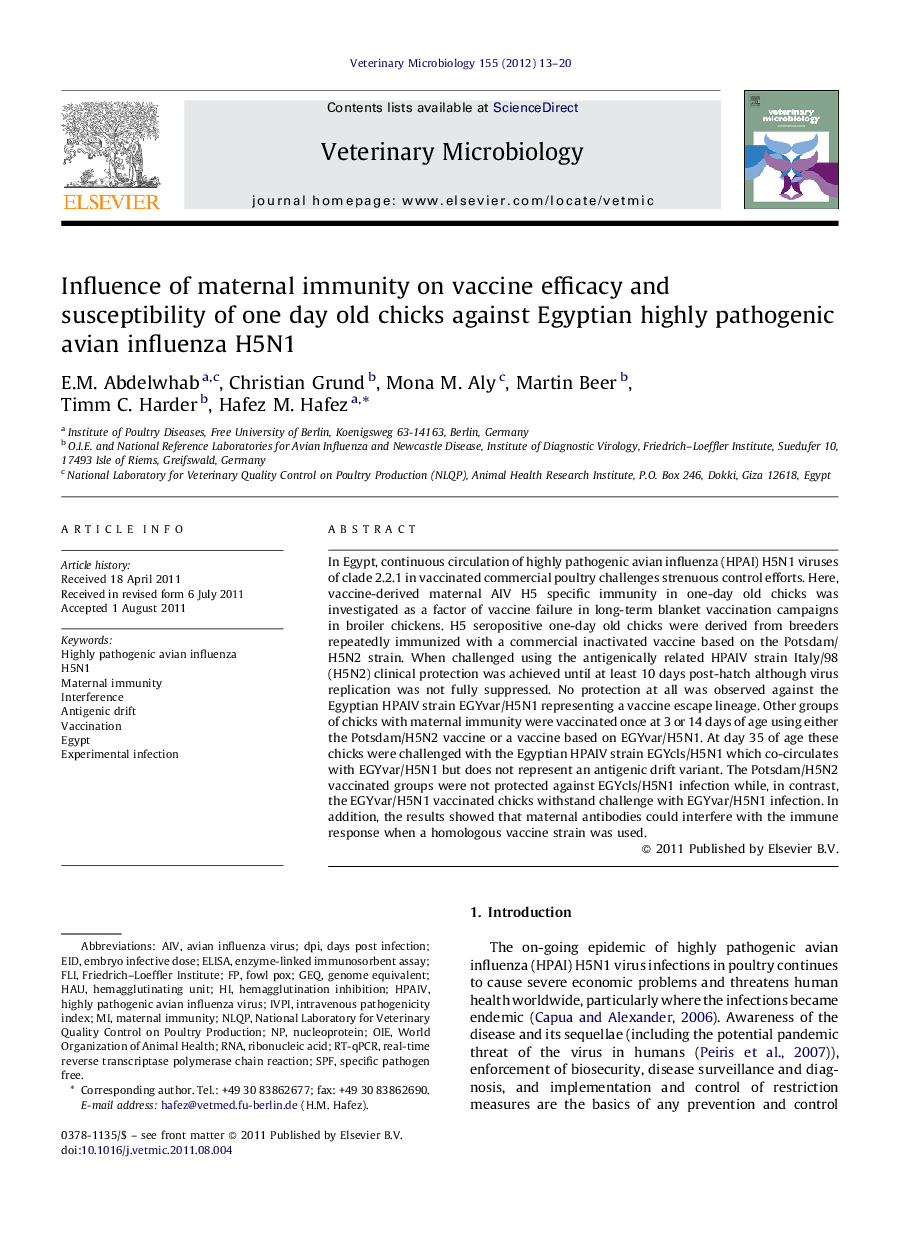| Article ID | Journal | Published Year | Pages | File Type |
|---|---|---|---|---|
| 2467510 | Veterinary Microbiology | 2012 | 8 Pages |
In Egypt, continuous circulation of highly pathogenic avian influenza (HPAI) H5N1 viruses of clade 2.2.1 in vaccinated commercial poultry challenges strenuous control efforts. Here, vaccine-derived maternal AIV H5 specific immunity in one-day old chicks was investigated as a factor of vaccine failure in long-term blanket vaccination campaigns in broiler chickens. H5 seropositive one-day old chicks were derived from breeders repeatedly immunized with a commercial inactivated vaccine based on the Potsdam/H5N2 strain. When challenged using the antigenically related HPAIV strain Italy/98 (H5N2) clinical protection was achieved until at least 10 days post-hatch although virus replication was not fully suppressed. No protection at all was observed against the Egyptian HPAIV strain EGYvar/H5N1 representing a vaccine escape lineage. Other groups of chicks with maternal immunity were vaccinated once at 3 or 14 days of age using either the Potsdam/H5N2 vaccine or a vaccine based on EGYvar/H5N1. At day 35 of age these chicks were challenged with the Egyptian HPAIV strain EGYcls/H5N1 which co-circulates with EGYvar/H5N1 but does not represent an antigenic drift variant. The Potsdam/H5N2 vaccinated groups were not protected against EGYcls/H5N1 infection while, in contrast, the EGYvar/H5N1 vaccinated chicks withstand challenge with EGYvar/H5N1 infection. In addition, the results showed that maternal antibodies could interfere with the immune response when a homologous vaccine strain was used.
